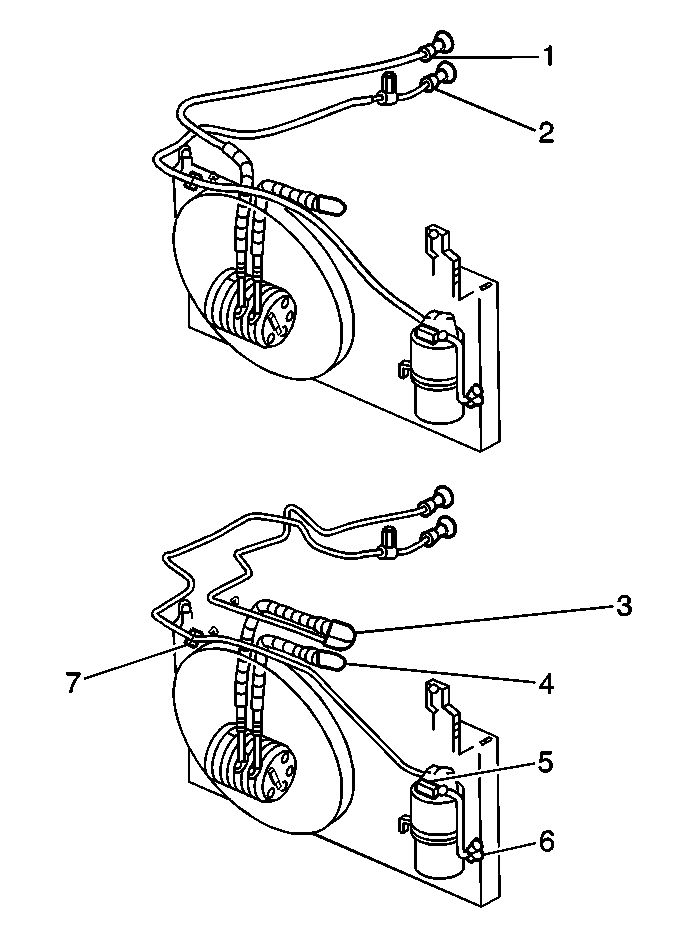For 1990-2009 cars only
Removal Procedure
- Discharge and recover the refrigerant. Refer to Refrigerant Recovery and Recharging .
- Remove the air cleaner from the vehicle.
- Remove the air conditioning (A/C) refrigerant pressure switch from the evaporator inlet pipe. Refer to Pressure Cycling Switch Replacement .
- Remove the evaporator inlet pipe (2) at the bulkhead fitting.
- Disconnect the pipe fitting in front of the condenser fan, which disconnects the evaporator inlet pipe from the receiver/dryer outlet pipe.
- Remove the evaporator inlet pipe from the inner fender retaining clip.
- Remove the evaporator inlet pipe from the vehicle.

Installation Procedure
- Coat new O-rings with mineral base 525 viscosity refrigerant oil.
- Install the O-rings to the evaporator inlet pipe (2).
- Install the evaporator inlet pipe (2) to the vehicle. Secure the evaporator inlet pipe at the inner fender retaining clip.
- Connect the evaporator inlet pipe to the receiver/dryer outlet pipe.
- Connect the evaporator inlet pipe at the bulkhead fitting.
- Install the A/C refrigerant pressure switch to the evaporator inlet pipe. Refer to Pressure Cycling Switch Replacement .
- Install the air cleaner to the vehicle.
- Evacuate and recharge the A/C system. Refer to Refrigerant Recovery and Recharging .
- Operate the A/C system and inspect for refrigerant leaks. Refer to Leak Testing .

Notice: Use the correct fastener in the correct location. Replacement fasteners must be the correct part number for that application. Fasteners requiring replacement or fasteners requiring the use of thread locking compound or sealant are identified in the service procedure. Do not use paints, lubricants, or corrosion inhibitors on fasteners or fastener joint surfaces unless specified. These coatings affect fastener torque and joint clamping force and may damage the fastener. Use the correct tightening sequence and specifications when installing fasteners in order to avoid damage to parts and systems.
Tighten
Tighten the pipe fitting to 35 N·m (26 lb ft)
Tighten
Tighten the pipe fitting to 35 N·m (26 lb ft)
